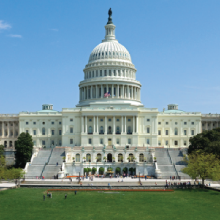Nivolumab Approved for Another Cancer
by Jay Bitkower on March 7, 2015On March 4, 2015, the FDA approved the Bristo-Myers Squibb (BMS) immunotherapy drug nivolumab (Opdivo) for use in non-small cell lung cancer (NSCLC) patients for whom other drugs have failed. The approval was based on interim results in a Phase III trial testing nivolumab, at 3 mg/kg, against docetaxel, a chemotherapy drug. Nivolumb was found to have extended overall survival (OS) by three months over docetaxel, giving patients on nivolumab a median OS of 9.2 months. The trial was discontinued three months early after the above results were released. Nivolumab had already been approved by the FDA for melanoma on December 22, 2014, also at 3 mg/kg dosage and also three months early.
BMS is currently running a Phase III trial in kidney cancer testing nivolumab against everolimus in clear cell patients, again at the 3 mg/kg dose level, in a second-line setting (after failure of prior antiangiogenic therapy). The trial is expected to be completed in 2016.
So why is RCC so far behind melanoma and NCLC? Back in 2010, ACKC reported on the results of a Phase I trial in multiple cancers: melanoma, NCLC, RCC, prostate, and colon. The latter two cancers had no positive results. Melanoma and RCC saw about a third of the patients responding to the therapy. NCLC had one response and five patients with stable disease out of a total of 11 patients. BMS continued with development in melanoma, RCC and NCLC, but was more aggressive in melanoma and NCLC. This is understandable given that, at the time, there were few efficacious treatments in those diseases while for kidney cancer, by the end of 2009, seven therapies had already been approved. BMS was not alone in sponsoring melanoma trials. Since 2011, seven therapies have been approved for melanoma by the FDA. For kidney cancer, only one therapy, axitinib (Inlyta) has been approved.
The anti-PD-1/PD-L1 therapies, according to trial results, have efficacy in RCC and are likely to be approved after Phase III trial results are announced. But this means that until FDA approval, nivolumab will only be available to metastatic RCC patients via trials, which are now limited. BMS, along with other drug companies, made an economic decision to be more aggressive in testing their drug in melanoma and NCLC. But we, patients and their representatives, can and should bring pressure on pharmaceutical and biotech companies that have promising compounds for the treatment of metastatic RCC patients, to expeditiously sponsor advanced trials with sufficient numbers of patients to be able to certify efficacy of the drug for RCC and then, if it works, apply for approval. ACKC did send a letter to Lamberto Andreotti, the CEO of Bristol-Myers Squibb in March 2011 asking for increased testing of nivolumab in RCC patients, but it is up to all of us to join such efforts. If you agree, sign up here and be an advocate for change.



